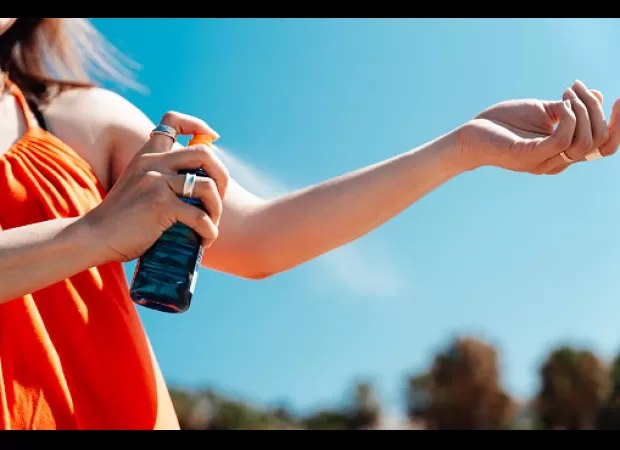Is SPF 100 actually effective and necessary for sun protection?
The situation is becoming intense.

With the hot weather ramping up and holiday season just around the corner, it's important to make sure you have all the necessary items packed for your trip. One of the most essential items is suncream, especially with the increasingly strong UV rays in the UK. While SPF 30 is a popular choice for sun protection, there has been a recent surge in availability of higher SPF options, such as SPF 100, in chemists and beauty aisles. But is a higher SPF really necessary for effective sun protection?
Firstly, let's clarify what SPF actually means. It stands for sun protection factor and indicates how well the suncream blocks out UVB rays. UVB rays can penetrate deep into the skin, causing painful burning, peeling, and even blistering. They are also associated with the development of skin cancers and precancerous changes known as actinic or solar keratoses, according to consultant dermatologist Dr. Mary Sommerlad.
The number on your chosen SPF product represents the amount of time you can spend in the sun without burning compared to how long you could spend in the sun without any protection. For example, an SPF 30 would provide 30 times the protection of your natural burn time, allowing you to stay in the sun for around four to five hours without burning. Dermatologist and skin cancer expert, Dr. Ross Perry, explains that you can calculate your burn time by multiplying the SPF factor by the speed of your burn. If you tend to burn after 15 minutes of sun exposure, an SPF 30 would give you 30 times that protection, equating to approximately four to five hours in the sun without burning.
While SPF 100 can be found in certain pharmacies and stores, you may be wondering how long it actually lasts. According to Dr. Perry, SPF 100 provides 100 times the protection of your natural burn time. This means that someone who would normally burn after 15 minutes in the sun could potentially stay out for over 24 hours with SPF 100. However, it's important to note that this is not an exact science as it's difficult to determine exactly how long it would take an individual to burn. Everyone's skin is different, and factors such as sweating, water activities, and rubbing against clothing can reduce the effectiveness of suncream.
So, does SPF 100 really work? Research suggests that it may be more effective in preventing sunburn compared to lower SPF options. For instance, a study from 2018 involving 200 participants wearing either SPF 50 or SPF 100 for six hours of sun exposure found that only 5% of those wearing SPF 100 showed signs of sunburn, compared to 55% of SPF 50 wearers. Similarly, a study from 2020 reported that only 7% of people who wore SPF 100 every day for five days had sunburn, while 56% of those using SPF 50+ experienced sunburn.
However, it's important to note that even with higher SPF options, it's unlikely that the suncream will provide protection for the full time suggested by the SPF. For this reason, Dr. Perry recommends reapplying every two to three hours when in a sunny, hot climate, regardless of the SPF used. As for why higher SPFs may provide longer protection, Dr. Perry explains that it's due to their increased effectiveness in blocking UVB rays. For example, SPF 100 is typically 99% effective in blocking UVB rays, while SPF 50 is around 98%, and SPF 30 is around 97%.
But what should you look for in a suncream? While SPF mainly protects against UVB rays, it's important to also consider protection against UVA rays, which can contribute to premature aging and skin cancer. This is where the star rating on suncream bottles comes into play. The higher the star rating, the better the protection against UVA rays. Additionally, Dr. Sommerlad recommends considering your skin type and the ease of application when choosing a suncream. It's important to choose one that you feel comfortable wearing, as this will ensure you continue to reapply throughout the day.
So, is SPF 100 worth it? It ultimately depends on your specific needs. While it may provide slightly longer protection compared to lower SPFs, it's important to remember that no suncream can provide 100% protection from the sun. Plus, higher SPF options can sometimes be thick and uncomfortable to wear, making it difficult to reapply throughout the day. However, for those who are particularly prone to sunburn or have a history of skin changes, SPF 100 may provide an extra level of protection. Ultimately, consistent and regular application of suncream, along with physical protection such as wearing hats and seeking shade, is key in preventing sunburn and skin damage.






